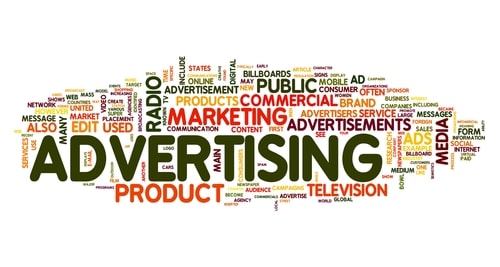The game was competitive. The ending – an amazing volley for control that devolved into an unsightly brawl – was an emotional rollercoaster, even for the uninitiated. Seahawks receiver Jermaine Kearse slides along the ground within yards of the end zone, tipping and bobbling the ball until he secures it for the chance to recover Seattle’s lead and win the game. With the Seahawks at the one-yard line and victory within reach, QB Russell Wilson tries to sneak a quick pass to Ricardo Lockette in the end zone…but the Pats arrive a half-second sooner and intercepts the ball – and the win. Wow. What a finish.
But for most of the uninitiated, what keeps people on the sofa through to the end – aside from Katy Perry’s cameo on the set of “SpongeBob the Musical” — was the parade of commercials from the high-rent district of Madison Avenue. The usual advertisers were there – Budweiser, McDonalds, Toyota – but there were newcomers to the thin ranks of $150,000-per-second advertising as well. These included a post-modern dance party of AV club alumni, clad in fanny packs, promoting crazy glue, as well as a queasing advert for toenail-cream.
***
Aside from a handful of clever cameos and funny bits, the tone of ads this year was sober and even… morally demanding. Nationwide had a heartwarming-turn-morbid commercial about a cute kid who does not get to do grown up things because…(sigh)…he drowned in a bathtub. Caveant parentes! Nissan put out a plea to sorry-I’m-too-busy fathers to show up for their children’s lives, overlaid with Harry Chapin’s Cats in the Cradle that would make anyone (at least the Irish among us) a little dewy eyed. Another message started with a clever turn on the “you ______ like a girl!” insult by asking males if it applied to their sister, too. And then in an act of defiant exultation, girls did those things – run, throw, etc. – all to show that these activities were not the exclusive property of boys. I was expecting this ad to be a PSA for equality; but it turned out to be an advertisement for Always Tampons, which are two words not often found together in PSAs, let alone this website.
The list of moralizing commercials continues: McDonalds introduced a campaign where some lucky patrons can pay for their meals with loving acts instead of cash. Dove Men+Care showed excited children calling to their fathers, asking us “What makes a man stronger?” What, we wonder. A new Ford F-150? Doritos? Nope. “Showing that he cares.” (Cue bride melting into her dad’s tender arms for the last time.) And the most poignant by far was a PSA playing a real 911 call, used to address domestic violence which, sad to say, often follows Super Bowl revelry.
***
One wonders what, exactly is going on with these ads? Was the more serious tone a mere coincidence, or a marketing collusion to promote some higher social good? A former chief marketing officer at Procter & Gamble, Jim Stengel, speculates that, “[m]ore and more, brands are thinking very seriously about the role they play in life. Call it purpose, ideals, mission, whatever, but it is a sweeping force in marketing departments and agencies.” In what has been a less-than-favorable year in the news for NFL players, the advertisers may have wisely decided to steer away from scantily-clad models mouthing bottles of Pepsi, let alone across-the-bar wink-and-nod beer commercials promising alcohol-induced hookups.
The idea that corporations – which are legally persons, after all – are calling people to higher moral living through saccharine product placement raises my antennae of suspicion. For-profit moral lessons? It sounds to me like televangelists with dyed hair and spiffy suits. And yet…although I will not be switching to Coca-Cola anytime soon, I felt inspired by their ad’s parting challenge, “the world is what we make it,” in response to some heavy news in the world these days. We can’t always predict bad things that happen in the world, but we definitely control our response to them.
All this to say, for those of us concerned with questions of moral living and the common good, we have a few choices when we encounter ads like these. We can (a) dismiss them as emotionally manipulative attempts at profiteering. This is a normal skeptical stance to those trying to sell us things. We can (b) presume corporate altruism for the common good; this seems unlikely, with Super Bowl ad-time running at $9 million/minute. A final option is (c) the via media. That is, we can sniff out allies in secular culture — yes, even corporations — who tap into (and reflect back to us) the values we aim for, even if we fail to attain them. We need not do this uncritically, but we can find the kernel of truth such ads present and ask what that ad was trying to connect with in our own longings for goodness. And the best part is, we need not buy Dove Men+Care shampoo, while we ponder and wrestle with the challenge the commercial raises.
***
Companies were willing to drop hundreds of millions of dollars to tell as many Americans to show greater love – sometimes by just showing up in the lives of their family, friends, and neighbors. The advertisers’ slogans and names often didn’t even appear until the last second; as if to say, “yes, we welcome your money…but did you see the first 29 seconds? About how you can be a better father, brother, husband, child, or friend?” The unseemly brawl in the end zone at the end of the game served as a jarring contrast to the ads’ call for a more civil world. It was as if the ads were saying in real time, “Are you seeing that? That is how easily things devolve…so let’s get to the hard work of doing better.”
To people of faith, the Super Bowl ads show us that the moral fiber of the nation is not irreparably frayed; that ‘secular American culture’ (broadly understood) recognizes a standard of goodness, and creatively presents our obligation to strive for it. To secularists who lampoon people of faith as finger-waggers and moralizers: these ads show that there is a moral impulse in our country, which is not uniquely religious, but which very well might be expressed in traditional religious and patriotic terms. Presuming ad agencies study their constituencies’ desires – and they surely do – I welcome the calls to strive for our best collective self, because these desires for goodness come from us to start with. All the better for people of faith, whose task of spreading the Good News involves searching for allies, even in the most unlikely places.
I think Coca Cola is on to something: the world — or at least our approach to the world — is what we make of it.




